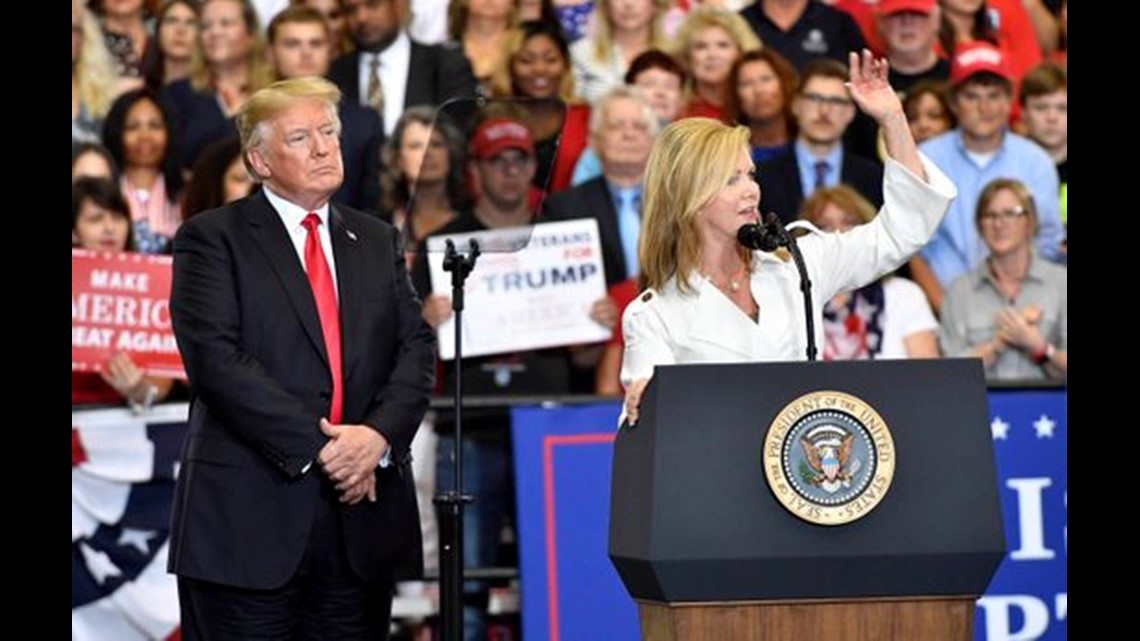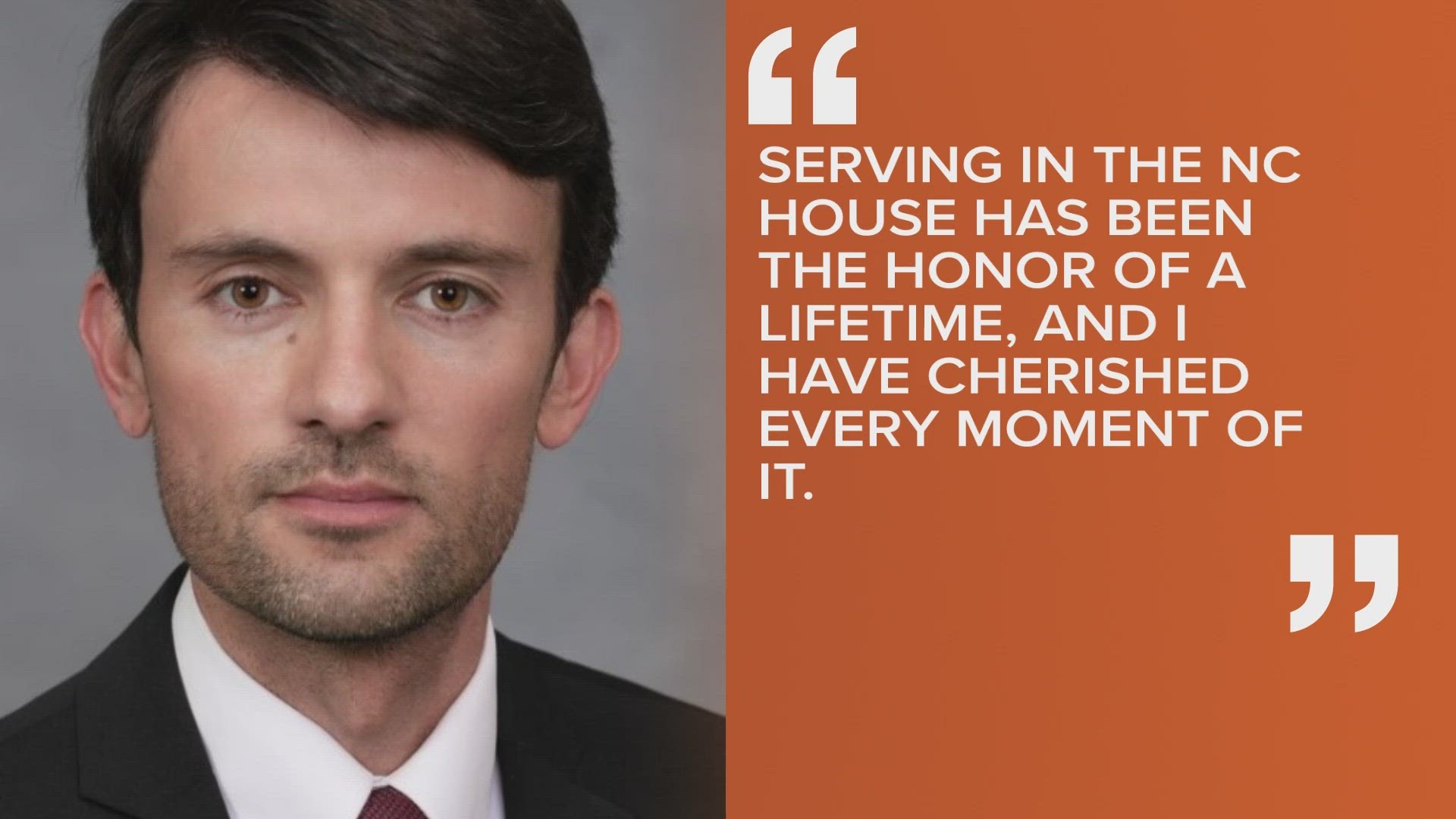WASHINGTON – Even before November’s midterm elections, women candidates are already having a record-breaking year.
Women have smashed records this election cycle in terms of the number who filed to run, the number of nominees for House, Senate and gubernatorial races, and even the number of women running against women in general election races.
“All that’s left now is what happens in November,” said Debbie Walsh, director of Rutgers' Center for American Women and Politics.
As this primary election season comes to a close, Walsh said she expects the number of women in Congress to increase next year. But she said the potential for breakthroughs for women of color, changes in representation for individual states, and political activism for women is equally important to the “story of the numbers.”
Boston City Councilor Ayanna Pressley, for instance, is now poised to become the first black woman elected to Congress from Massachusetts after a stunning upset victory in Tuesday's Democratic primary.
The Center for American Women and Politics has been tracking women who are breaking through barriers, or who are poised to do so, this election cycle. Here are some women candidates for major offices who are making history:
Stacey Abrams: The first African-American woman to win a major party nomination for governor in the country. Abrams, a Georgia Democrat, is running against Georgia’s Secretary of State Brian Kemp, a Republican, in a state that has elected GOP governors since 2003. If she wins, she will become the nation’s first African-American female governor.
Michelle Lujan Grisham and Lupe Valdez: The first Democratic Latinas nominated for governor. Lujan Grisham, a U.S. representative who chairs the Congressional Hispanic Caucus, is running for an open seat in New Mexico against another member of Congress, GOP Rep. Steve Pearce. New Mexico’s current governor, Susana Martinez, a Republican, was the first Hispanic female governor in the U.S. In Texas, Valdez, a former Dallas County sheriff, is already the first member of the LGBTQ community to win a major party nomination for governor in the state. She is challenging Texas Gov. Greg Abbott, a Republican.
Paulette Jordan: The first Native American woman to be nominated for governor. Jordan, a Democrat and member of the Coeur d’Alene Tribe, is also the first woman in Idaho to win the Democratic Party’s gubernatorial nomination. If she upsets Republican Lt. Gov. Brad Little in November, she will become the state’s first woman governor and the nation’s first Native American governor.
Debra Haaland: Likely to be the first Native American congresswoman. Haaland, a New Mexico Democrat and member of the Pueblo of Laguna tribe, is running against Republican Janice Arnold-Jones in November for a seat considered solidly Democratic.
Alexandria Ocasio-Cortez and Abby Finkenauer: Could be the youngest women elected to Congress if they win in November. Ocasio-Cortez, 28, a New York Democrat and activist, is expected to win in her heavily Democratic congressional district, which includes the Eastern Bronx and Queens. In Iowa, Finkenauer, 29, a Democrat, is in a competitive race against an incumbent, Rep. Rod Blum, to represent a district President Donald Trump won. If Finkenauer wins, she would also become the Iowa’s first U.S. congresswoman. U.S. representatives must be 25 or older.
Cindy Hyde-Smith: Likely to be Mississippi’s first elected woman in Congress. Hyde-Smith, a Republican who already represents Mississippi in the U.S. Senate, was appointed to fill a vacancy in April. If she wins her election in November, that would leave Vermont as the only remaining state that has never elected a woman to the U.S. Senate or House.
Ilhan Omar and Rashida Tlaib: Poised to become the first Muslim women in Congress. Omar, a Democratic Minnesota state representative, is already the nation’s first Somali-American legislator. She is competing for a safe blue House district in Minneapolis, and would also become the state’s first woman of color elected to Congress if she wins. Tlaib, a former state legislator who is also a Democrat, is running unopposed in Michigan’s 13th Congressional District, which includes parts of Detroit.
Marsha Blackburn: Tennessee’s first Republican woman nominated for U.S. Senate and the state’s first woman in 40 years to be nominated by a major party for the U.S. Senate. Blackburn, a Republican U.S. representative, is a running in a competitive race against former Gov. Phil Bredesen, a Democrat. If she wins, she will become the state’s first woman senator.
Jahana Hayes: Likely to be Connecticut's first black woman – along with the state's first black Democrat – elected to Congress. Hayes, a political newcomer who was the 2016 National Teacher of the Year, is expected to win her bid to replace Democratic Rep. Elizabeth Esty, who is not seeking re-election.
Christine Hallquist: The nation’s first openly transgender candidate nominated for governor by a major party. Hallquist, a Vermont Democrat and former utility CEO, faces Vermont Gov. Phil Scott, a Republican, who is seeking his second term.


Martha McSally and Kyrsten Sinema: Either is poised to become Arizona's first woman elected to the U.S. Senate in November. Both U.S. representatives, McSally, a Republican, and Sinema, a Democrat, are in a competitive battle against each other to replace GOP Sen. Jeff Flake, who is retiring. Their race is among more than 30 congressional and gubernatorial races in which women are running against women. Democrats see the race as a pickup opportunity, but the death of Sen. John McCain, R-Ariz., and his legacy are expected to loom over the race.
Ayanna Pressley: Poised to become the first black woman elected to Congress from Massachusetts. The Boston City Councilor knocked out 10-term Rep. Michael Capuano in Tuesday's Democratic primary and is now running unopposed.

